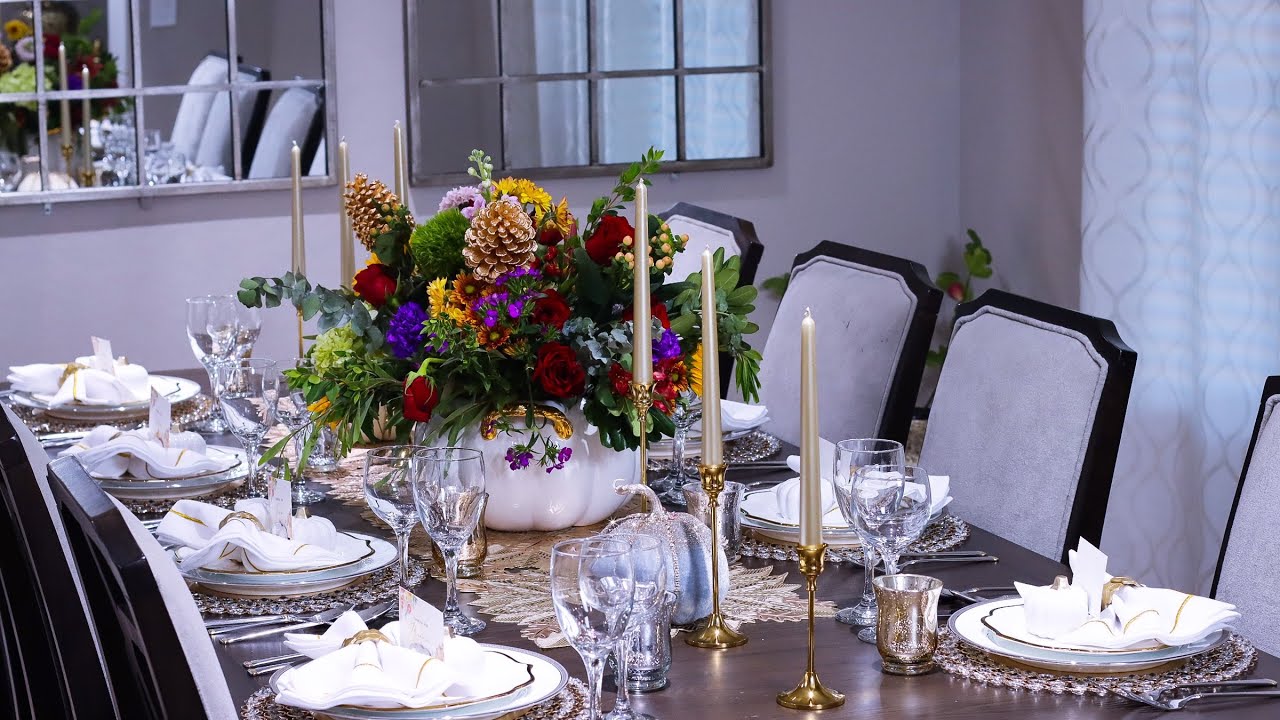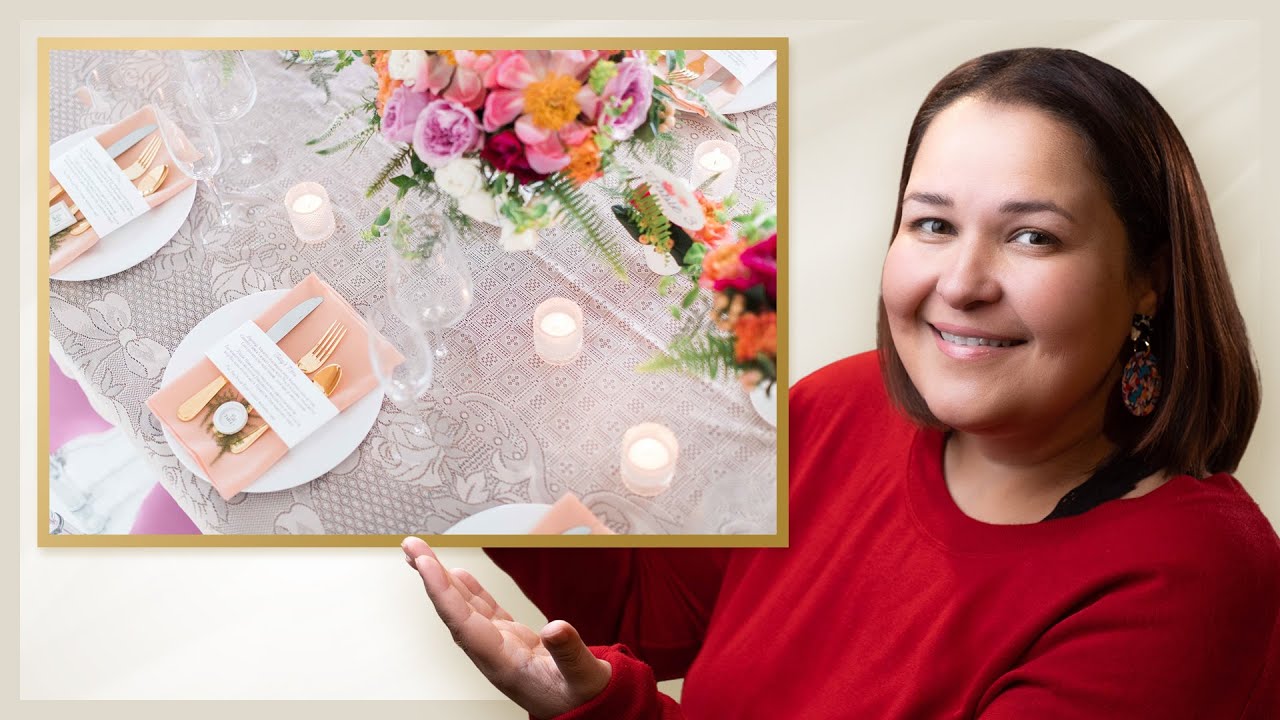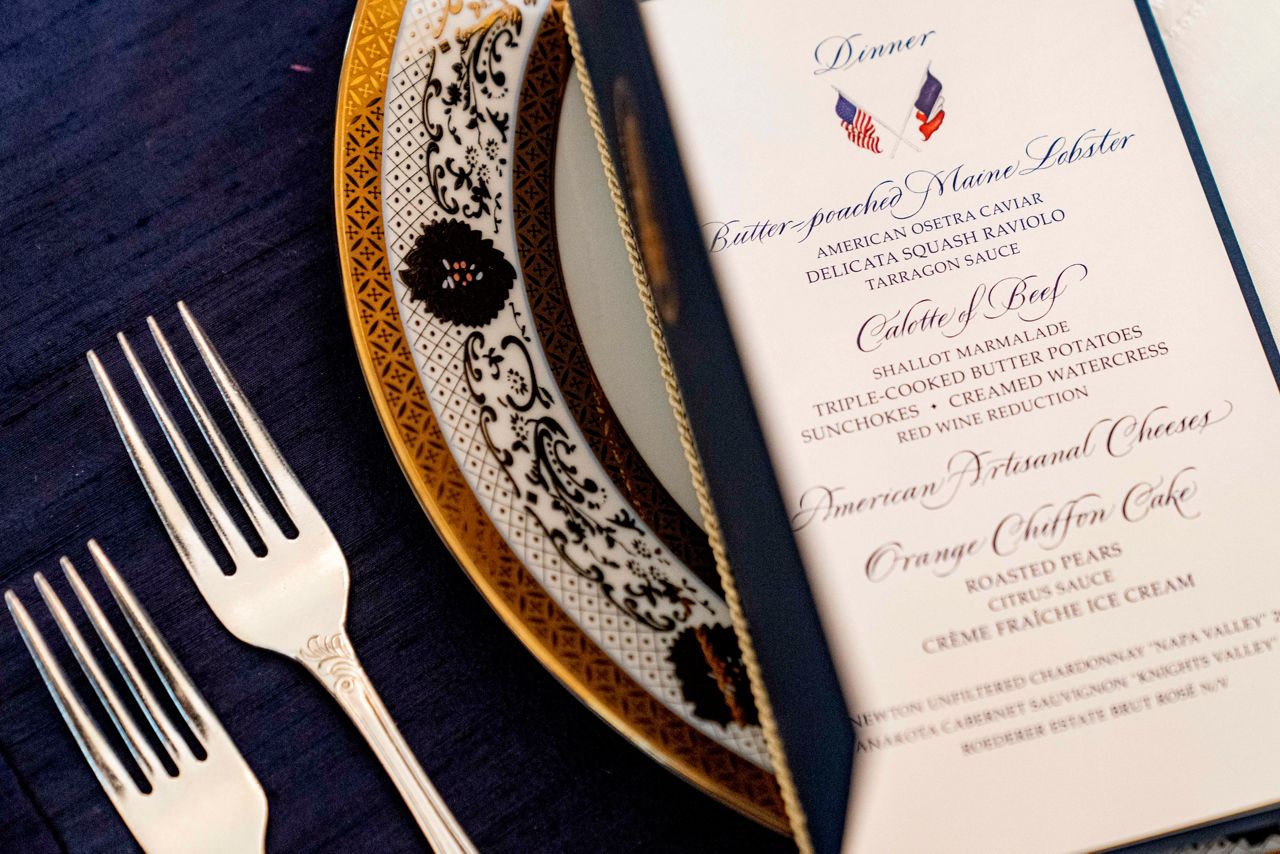Home>Dining>Events & Etiquette>How To Reject A Dinner Invitation


Events & Etiquette
How To Reject A Dinner Invitation
Modified: January 4, 2024
Learn the proper events etiquette on how to politely decline a dinner invitation and handle situations with grace. Avoid any awkwardness and maintain social harmony.
(Many of the links in this article redirect to a specific reviewed product. Your purchase of these products through affiliate links helps to generate commission for Storables.com, at no extra cost. Learn more)
Introduction
Attending dinner parties and social gatherings is a common part of our social lives. However, there may be occasions when you receive a dinner invitation that you are unable to accept. Perhaps you have a prior commitment, a scheduling conflict, or you simply need some time for yourself. Whatever the reason may be, it’s important to handle the situation with grace and tact.
Turning down a dinner invitation can be a delicate task, as you don’t want to offend or hurt the host’s feelings. In this article, we will explore the art of politely declining a dinner invitation and offer some tips on how to handle potential reactions from the host. By following these guidelines, you can navigate these social situations with confidence and maintain healthy relationships with your friends and acquaintances.
Before we dive into the specifics, it’s crucial to emphasize the importance of genuine and honest communication when declining a dinner invitation. It’s essential to be considerate of the host’s effort and thoughtfulness in extending the invitation to you. Remember, the objective is to decline the invitation gracefully while expressing your appreciation for being invited.
In the following sections, we will discuss some key considerations to keep in mind before politely declining a dinner invitation. We will then explore strategies for delivering your decline with diplomacy and suggesting alternative plans. Lastly, we will address potential reactions from the host and how to navigate them with tact.
So, if you are ready to master the art of gracefully rejecting a dinner invitation, let’s explore some key considerations and strategies that will help you navigate these social situations with ease and respect. By practicing proper etiquette, you can maintain solid relationships with your friends and acquaintances while politely declining invitations that you are unable to accept.
Key Takeaways:
- Gracefully decline dinner invitations by expressing gratitude, being honest but concise, and suggesting alternative plans to maintain strong relationships with hosts.
- Handle potential reactions with empathy, reaffirm appreciation, and redirect conversations positively to maintain rapport after declining dinner invitations.
Read more: How To Accept A Dinner Invitation
Considerations before rejecting a dinner invitation
When it comes to declining a dinner invitation, there are several factors to consider to ensure that you handle the situation gracefully and respectfully. Here are some key considerations to keep in mind before you make your decision:
1. Assess your availability: Before you immediately decline the dinner invitation, take a moment to assess your availability. Evaluate your schedule and commitments to determine if there is any chance of rearranging things or making adjustments to accommodate the invitation. Consider the importance of the event and the relationship you have with the host before making your final decision.
2. Think about your reasons: It’s essential to have a valid reason for declining the invitation. Think about your reasons carefully and ensure they are genuine and respectful. Whether it’s a prior engagement, personal commitment, or simply needing some downtime, be honest with yourself and the host.
3. Consider the significance of the event: Different events hold varying levels of importance. If the dinner invitation is for a significant occasion, such as a milestone celebration or an important gathering, weigh the significance of the event and evaluate your reasons for declining accordingly. If it’s a close friend or family member hosting the dinner, it may be worth considering attending if possible.
4. Evaluate the relationship with the host: Consider the nature of your relationship with the host. If you have a close relationship, it’s important to communicate your decline with extra care and thoughtfulness. On the other hand, if you are more distantly acquainted, you can be more straightforward and concise in your response.
5. Be respectful and appreciative: Regardless of your decision, it’s crucial to be respectful and appreciative of the invitation. Express your gratitude for being invited and acknowledge the effort and thoughtfulness the host put into planning the event. This will help maintain a positive and respectful relationship with the host.
Remember, declining a dinner invitation is a personal choice, and you have the right to prioritize your own needs and commitments. By carefully considering these factors, you can make an informed and respectful decision when declining a dinner invitation. In the next section, we will discuss how to politely decline a dinner invitation while maintaining the integrity of your relationships.
How to politely decline a dinner invitation
Politely declining a dinner invitation requires finesse and tact. Here are some strategies to help you navigate this situation while maintaining a respectful and amicable relationship with the host:
1. Express your gratitude: Start your response by expressing your gratitude for the invitation. Let the host know that you appreciate being included and that you value their friendship or acquaintance. This sets a positive tone and shows that you genuinely care about their gesture.
Example: “Thank you so much for inviting me to your dinner. I truly appreciate your thoughtfulness in including me.”
2. Be honest but concise: Clearly state your reasons for declining the invitation in a polite and concise manner. Avoid lengthy explanations or making up excuses. Honesty is important, but there is no need to delve into unnecessary details.
Example: “Unfortunately, I have a prior commitment on that evening and will not be able to attend.”
3. Apologize sincerely: Offer a genuine apology for not being able to attend. Let the host know that you regret missing out on the event and that you would have loved to join if circumstances were different.
Example: “I’m really sorry that I won’t be able to join you. I would have loved to attend and enjoy your company.”
4. Propose an alternative: If you genuinely want to make it up to the host, propose an alternative plan to spend time together. This shows that you value their invitation and are interested in maintaining the relationship despite not being able to attend the dinner.
Example: “However, I would love to catch up with you another time. Perhaps we could grab lunch or coffee next week?”
5. Offer assistance, if applicable: If appropriate, offer your assistance in any way that can ease the burden for the host. This demonstrates your willingness to contribute despite not being able to attend.
Example: “If there’s anything I can do to help with the preparations or with finding a replacement guest, please let me know.”
Remember, the key to politely declining a dinner invitation is to convey your regrets while maintaining a respectful and appreciative tone. By following these strategies, you can gracefully decline the invitation without causing offense or discomfort to the host. In the next section, we will discuss how to suggest an alternative plan to the host, ensuring that you maintain a connection beyond the declined invitation.
Be honest and polite. Thank the host for the invitation and explain your reason for declining. Offer to reschedule or suggest an alternative way to connect.
Suggesting an alternative plan
When declining a dinner invitation, it is always good etiquette to offer an alternative plan as a way to show your interest in maintaining the relationship. Here are some tips on suggesting an alternative plan:
1. Be specific and flexible: When suggesting an alternative plan, be specific about the activity or event you have in mind. This shows that you have put thought into the proposal. At the same time, be flexible and open to the host’s availability and preferences.
Example: “Since I won’t be able to make it to the dinner, how about we plan a weekend brunch at that new café we’ve been wanting to try? I’m available on Saturdays and Sundays, so let me know what works for you.”
2. Offer options: Provide the host with several options for alternative plans. This allows them to choose what suits their schedule and preferences. Offering options also shows that you are willing to be flexible and make an effort to spend time together.
Example: “If brunch doesn’t work, we could go for a hike in the park or check out that art exhibition we’ve been talking about. Let me know which option appeals to you, or if you have any other suggestions.”
3. Suggest a future date: If there is no immediate alternative plan that comes to mind, suggest a future date or event that you can attend. This ensures that the host knows you are genuinely interested in spending time together, even if you cannot make it to this particular dinner.
Example: “If none of these options work out, I would love to join you for your next gathering or event. Please keep me in mind for future occasions, and I will make sure to prioritize it in my schedule.”
4. Follow up promptly: After suggesting an alternative plan, be prompt in following up with the host to finalize the details. This shows that you are committed to making new plans and that you value their time and effort in organizing the dinner.
Example: “I’ll wait to hear back from you regarding the alternative plan. I’m excited to catch up and spend time together.”
Remember, suggesting an alternative plan is a thoughtful gesture that demonstrates your eagerness to maintain the relationship despite not being able to attend the dinner. By being specific, flexible, and open to options, you can show your genuine interest in spending time with the host. In the next section, we will discuss how to handle potential reactions from the host when you decline their dinner invitation.
Handling potential reactions
When you decline a dinner invitation, it is important to be prepared for potential reactions from the host. While most hosts will understand and respect your decision, some may react with disappointment or even frustration. Here are some strategies for handling potential reactions in a tactful and respectful manner:
1. Be empathetic: Put yourself in the host’s shoes and understand that they may be disappointed by your decline. Show empathy and acknowledge their feelings. Reassure them that your decision is not a reflection of their invitation or their hosting abilities.
Example: “I understand that you may be disappointed, and I’m sorry for any inconvenience caused. Please know that my decision has nothing to do with your hosting skills or the appeal of the event.”
2. Reaffirm your appreciation: Emphasize once again how much you appreciate the invitation and value your relationship with the host. Reassure them that your decline does not diminish your regard for them or the event.
Example: “I truly appreciate the invitation and the effort you put into planning this dinner. Please understand that my inability to attend does not diminish how much I value our friendship/acquaintance.”
3. Offer an explanation, if necessary: If the host presses for a reason for your decline or seems upset, you can provide a brief explanation without going into unnecessary detail. Avoid sounding defensive or apologetic, and stick to the facts.
Example: “I have a prior commitment that I cannot change, and I’m unable to attend the dinner. I sincerely apologize for any inconvenience caused.”
4. Redirect the conversation: If the host continues to express disappointment or frustration, try redirecting the conversation towards more positive topics. Ask about their upcoming plans or any recent events in their life. This helps shift the focus away from your declined invitation and maintains a positive atmosphere.
Example: “I understand that you were looking forward to having me at the dinner. On a happier note, how have you been? Have you made any exciting plans for the weekend?”
5. Offer to connect in a different setting: Reaffirm your desire to spend time with the host by suggesting an alternative way to connect. By offering to meet up in a different setting or attending a future event, you show that you are committed to maintaining the relationship.
Example: “I won’t be able to make it to the dinner, but I would love to catch up over coffee or join you for your next gathering. Let’s find another opportunity to spend time together.”
Remember, not all hosts will have a negative reaction to your decline. However, if you encounter some disappointment or frustration, remain calm, empathetic, and respectful. Show that you value the relationship and are open to future opportunities to connect. By handling potential reactions with grace and understanding, you can maintain a positive rapport with the host. In the concluding section, we will summarize the key points discussed in this article.
Note: The examples provided in this section are general suggestions and can be adjusted based on your specific situation and relationship with the host. It’s important to tailor your responses accordingly.
Read more: How To Cancel A Dinner Invitation
Conclusion
Declining a dinner invitation can be a delicate task, but with the right approach, you can navigate these situations with grace and respect. By considering key factors such as your availability, the significance of the event, and your relationship with the host, you can make an informed decision when declining an invitation.
Polite communication is essential when declining a dinner invitation. Express your gratitude for the invitation, be honest but concise in stating your reasons, and offer a genuine apology for not being able to attend. This sets a positive and respectful tone, while showing that you value the host’s effort and friendship.
Suggesting an alternative plan is a thoughtful gesture that demonstrates your genuine interest in maintaining the relationship. Be specific, flexible, and open to options when proposing an alternative plan. This shows that you are willing to make an effort to spend time with the host, even if it’s not at the dinner in question.
Handling potential reactions from the host requires empathy, understanding, and effective communication. Be empathetic towards their disappointment, reaffirm your appreciation for the invitation, and offer a brief explanation if necessary. Redirect the conversation towards more positive topics and express your desire to connect in a different setting or future event.
In conclusion, politely declining a dinner invitation requires thoughtful consideration, respectful communication, and understanding. By following the strategies outlined in this article, you can gracefully decline an invitation while maintaining strong relationships with your friends and acquaintances. Remember, it’s about maintaining open and honest communication while showing respect and gratitude for the host’s invitation.
Frequently Asked Questions about How To Reject A Dinner Invitation
Was this page helpful?
At Storables.com, we guarantee accurate and reliable information. Our content, validated by Expert Board Contributors, is crafted following stringent Editorial Policies. We're committed to providing you with well-researched, expert-backed insights for all your informational needs.















0 thoughts on “How To Reject A Dinner Invitation”